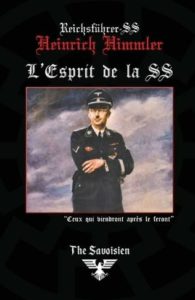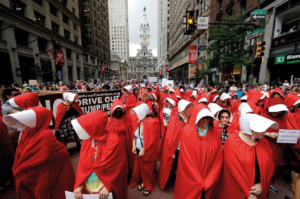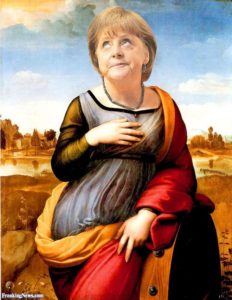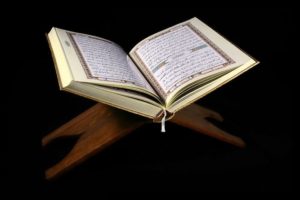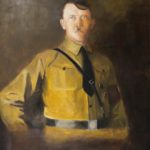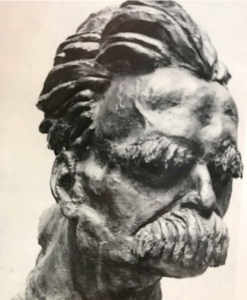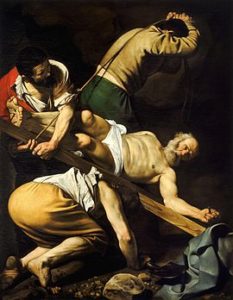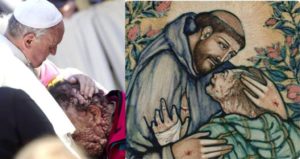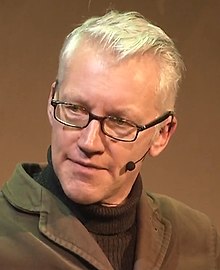The following quotes are taken from the final pages of ‘Woke’, the final chapter of Tom Holland’s Dominion: How the Christian Revolution Remade the World.
I have sought, in writing this book, to be as objective as possible. Yet this, when dealing with a theme such as Christianity, is not to be neutral. To claim, as I most certainly do, that I have sought to evaluate fairly both the achievements and the crimes of Christian civilisation is not to stand outside its moral frameworks, but rather—as Nietzsche would have been quick to point out—to stand within them.
Holland is a liberal, not a priest of the sacred words.
The people who, in his famous fable, continue to venerate the shadow of God are not just church-goers. All those in thrall to Christian morality—even those who may be proud to array themselves among God’s murderers—are included among their number. Inevitably, to attempt the tracing of Christianity’s impact on the world is to cover the rise and fall of empires, the actions of bishops and kings, the arguments of theologians, the course of revolutions, the planting of crosses around the world. It is, in particular, to focus on the doings of men. Yet that hardly tells the whole story. I have written much in this book about churches, and monasteries, and universities; but these were never where the mass of the Christian people were most influentially shaped. It was always in the home that children were likeliest to absorb the revolutionary teachings that, over the course of two thousand years, have come to be so taken for granted as almost to seem human nature. [pages 534-535]
I have omitted several paragraphs from these final pages in which Holland writes several autobiographical vignettes about how he was brought up by his godmother in the Anglican church. In those pages Holland correctly states that Christianity has been passed down from parents to their offspring for two millennia: it’s programming just as we program our computers. These autobiographical paragraphs are very important in that they explain how whites have been axiologically programmed for many generations, and anyone who wants to read them should simply buy Holland’s book. (I already knew that, although the difference between Holland and me is abysmal in that Christianity didn’t destroy his life.)
‘There is nothing particular about man. He is but a part of this world.’ Today, in the West, there are many who would agree with Himmler that, for humanity to claim a special status for itself, to imagine itself as somehow superior to the rest of creation, is an unwarrantable conceit. Homo sapiens is just another species. To insist otherwise is to cling to the shattered fragments of religious belief.
What Savitri Devi calls anthropocentrism.
Yet the implications of this view—which the Nazis, of course, claimed as their sanction for genocide—remain unsettling for many. Just as Nietzsche had foretold, freethinkers who mock the very idea of a god as a dead thing, a sky fairy, an imaginary friend, still piously hold to taboos and morals that derive from Christianity. In 2002, in Amsterdam, the World Humanist Congress affirmed ‘the worth, dignity and autonomy of the individual and the right of every human being to the greatest possible freedom compatible with the rights of others’. Yet this—despite humanists’ stated ambition to provide ‘an alternative to dogmatic religion’—was nothing if not itself a statement of belief. Himmler, at any rate, had understood what licence was opened up by the abandonment of Christianity.
The humanist assumption that atheism and liberalism go together was just that: an assumption. Without the biblical story that God had created humanity in his own image to draw upon, the reverence of humanists for their own species risked seeming mawkish and shallow. What basis—other than mere sentimentality—was there to argue for it? Perhaps, as the humanist manifesto declared, through ‘the application of the methods of science’. Yet this was barely any less of a myth than Genesis. As in the days of Darwin and Huxley, so in the twenty-first century, the ambition of agnostics to translate values ‘into facts that can be scientifically understood’ was a fantasy. It derived not from the viability of such a project, but from medieval theology. It was not truth that science offered moralists, but a mirror. Racists identified it with racist values; liberals with liberal values. The primary dogma of humanism—‘that morality is an intrinsic part of human nature based on understanding and a concern for others’—found no more corroboration in science than did the dogma of the Nazis that anyone not fit for life should be exterminated. The wellspring of humanist values lay not in reason, not in evidence-based thinking, but in history.
Now that instalment 40 concludes this series, I will include these quotes and my published comments about Dominion in a new PDF book that I may eventually title Paradigm Shift for Racialists. Incidentally, I’ll change the cover to another book we have published here, On Exterminationism, although I haven’t yet decided which image to use. It seems clear to me that if, like the Nazis, I have become an exterminationist and white nationalists don’t, it is because they still obey the Jews who wrote the New Testament, which is clear from what Holland went on to write in the final pages of his book:
When, in an astonishing breakthrough, collagen was extracted recently from the remains of one tyrannosaur fossil, its amino acid sequences turned out to bear an unmistakable resemblance to those of a chicken. The more the evidence is studied, the hazier the dividing line between birds and dinosaurs has become. The same, mutatis mutandis, might be said of the dividing line between agnostics and Christians. On 16 July 2018, one of the world’s best-known scientists, a man as celebrated for his polemics against religion as for his writings on evolutionary biology, sat listening to the bells of an English cathedral. ‘So much nicer than the aggressive-sounding “Allahu Akhbar”,’ Richard Dawkins tweeted. ‘Or is that just my cultural upbringing?’ The question was a perfectly appropriate one for an admirer of Darwin to ponder. It is no surprise, since humans, just like any other biological organism, are products of evolution, that its workings should be evident in their assumptions, beliefs and cultures. A preference for church bells over the sound of Muslims praising God does not just emerge by magic. Dawkins—agnostic, secularist and humanist that he is—absolutely has the instincts of someone brought up in a Christian civilisation.
Today, as the flood tide of Western power and influence ebbs, the illusions of European and American liberals risk being left stranded. Much that they have sought to cast as universal stands exposed as never having been anything of the kind. Agnosticism—as Huxley, the man who coined the word, readily acknowledged—ranks as ‘that conviction of the supremacy of private judgment (indeed, of the impossibility of escaping it) which is the foundation of the Protestant Reformation’. Secularism owes its existence to the medieval papacy. Humanism derives ultimately from claims made in the Bible: that humans are made in God’s image; that his Son died equally for everyone; that there is neither Jew nor Greek, slave nor free, male nor female. Repeatedly, like a great earthquake, Christianity has sent reverberations across the world. First there was the primal revolution: the revolution preached by Saint Paul. Then there came the aftershocks: the revolution in the eleventh century that set Latin Christendom upon its momentous course; the revolution commemorated as the Reformation; the revolution that killed God. All bore an identical stamp: the aspiration to enfold within its embrace every other possible way of seeing the world; the claim to a universalism that was culturally highly specific. That human beings have rights; that they are born equal; that they are owed sustenance, and shelter, and refuge from persecution: these were never self-evident truths.
The Nazis, certainly, knew as much—which is why, in today’s demonology, they retain their starring role. Communist dictators may have been no less murderous than fascist ones; but they—because communism was the expression of a concern for the oppressed masses—rarely seem as diabolical to people today. The measure of how Christian we as a society remain is that mass murder precipitated by racism tends to be seen as vastly more abhorrent than mass murder precipitated by an ambition to usher in a classless paradise.
This is absolutely fundamental to understanding the darkest hour of the white man.
Liberals may not believe in hell; but they still believe in evil. The fear of it puts them in its shade no less than it ever did Gregory the Great. Just as he lived in dread of Satan, so do we of Hitler’s ghost. Behind the readiness to use ‘fascist’ as an insult there lurks a numbing fear: of what might happen should it cease to be taken as an insult. If secular humanism derives not from reason or from science, but from the distinctive course of Christianity’s evolution—a course that, in the opinion of growing numbers in Europe and America, has left God dead—then how are its values anything more than the shadow of a corpse? What are the foundations of its morality, if not a myth?
A myth, though, is not a lie. At its most profound—as Tolkien, that devout Catholic, always argued—a myth can be true. To be a Christian is to believe that God became man and suffered a death as terrible as any mortal has ever suffered. This is why the cross, that ancient implement of torture, remains what it has always been: the fitting symbol of the Christian revolution. It is the audacity of it—the audacity of finding in a twisted and defeated corpse the glory of the creator of the universe—that serves to explain, more surely than anything else, the sheer strangeness of Christianity, and of the civilisation to which it gave birth. Today, the power of this strangeness remains as alive as it has ever been. It is manifest in the great surge of conversions that has swept Africa and Asia over the past century; in the conviction of millions upon millions that the breath of the Spirit, like a living fire, still blows upon the world; and, in Europe and North America, in the assumptions of many more millions who would never think to describe themselves as Christian. All are heirs to the same revolution: a revolution that has, at its molten heart, the image of a god dead on a cross…
Crucifixion was not merely a punishment. It was a means to achieving dominance: a dominance felt as a dread in the guts of the subdued. Terror of power was the index of power. That was how it had always been, and always would be. It was the way of the world. For two thousand years, though, Christians have disputed this. Many of them, over the course of this time, have themselves become agents of terror. They have put the weak in their shadow; they have brought suffering, and persecution, and slavery in their wake. Yet the standards by which they stand condemned for this are themselves Christian; nor, even if churches across the West continue to empty, does it seem likely that these standards will quickly change. ‘God chose the weak things of the world to shame the strong.’ This is the myth that we in the West still persist in clinging to. [pages 537-542, bold type added]
Dominion! The paradigm shift proposed by The West’s Darkest Hour is simple: Christian morality is the primary cause of Aryan decline, not Jewish subversion. White nationalists will never solve the Jewish problem because, unlike Himmler, they are programmed by Judeo-Christian morality.
It is paradoxical, but as long as they believe that the JQ is the primary cause they will never settle accounts with Jewry. Settling accounts involves transvaluing all Christian values for pre-Christian values (it’s impossible to solve the Jewish problem using a framework of values that is itself utterly Judeo-Christian!). Transvaluation means repudiating all of Western history from Constantine onwards as well as having the spirit of Hitler, and the coming Kalki, as the avatars to follow as Savitri rightly said in her book we translated.
